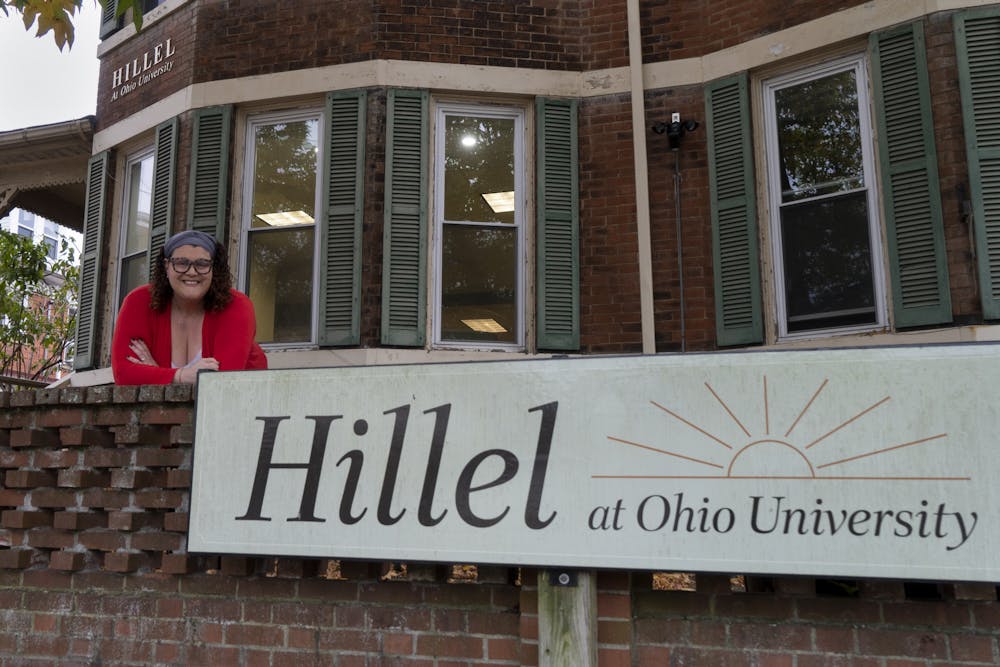On Friday, Ohio University’s Hillel is hosting a Black Jewish Shabbat, which will recognize and celebrate the intersection between Black and Jewish Americans.
The celebration, which is a collaboration between Hillel, the Multicultural Center, and the Black Student Cultural Programming Board, will be hosted during Hillel’s usual Friday Shabbat service at the Hillel House, 21 Mill St., but it will specifically emphasize Black and Jewish identities in celebration of Black History Month.
Winsome Chunnu, director of the Multicultural Center, said the creation of this event was widely inspired by the lack of awareness surrounding the intersection of these two minority groups.
“Generally, people don't know that there are Black Jews,” Chunnu said. “So for me, this is a natural fit, in terms of its Black History Month. We have Black Jewish students, we can present both to the traditional Jewish students who will be coming to the program, as well as to the Black community.”
Sarah Livingston, executive director of Hillel, said this relationship extends far into the histories of both of these minority groups, as each have supported one another amid tumultuous fights for their civil rights. In acknowledging this complex history, Livingston said it will also help to notice the support the groups can offer one another in present-day fights against injustice.
“One of the things that we have found is as our friends in the Black community are dealing with fighting systemic racism in really public ways right now, it's paralleling with a drastic and terrifying rise in antisemitism around the world,” Livingston said. “We want to bring together the intersection of Black and Jewish American life and to talk about why it's so important for Jews to fight alongside Black Americans for their civil rights, and why we think it's important that so many amazing Black Americans are standing up against antisemitism.”
In recognizing this relationship, Livingston said it is also important to acknowledge the different experiences within the two communities as well, in order to formulate a sense of empathy, respect and understanding.
“It's important to be loud about being Jewish, so that you know that your status as a Jew interrelates with many other minorities that are also struggling, and that when you can parallel the struggles of other minorities, you have more empathy, more compassion and more willingness to fight their fights with yours,” Livingston said.
During the event, Erykah Gaston, a student taking a gap year studying child and family studies, will be speaking about her experiences in being both Black and Jewish and how both of these identities, separately and interconnected, impact her daily life.
Gaston hopes her speech will resonate with those who attend and allow them to recognize the ways in which the intersection of these identities impact one another.
“It's just really important to put awareness out there, and for everyone to gain this knowledge about it so that they can be able to come together and do something about it,” Gaston said. “Just so that they have this experience and they know… it's a thing that people go through.”
Despite these heavier topics surrounding the event, Livingston emphasized the purpose of the event is for it to be celebratory, where individuals can gather, speak with one another and share food pertaining to both cultural groups.
“It's supposed to be joyful,” Livingston said. “It's supposed to be about us coming together and celebrating the fact that we can be side by side in partnership.”
With the event’s opportunity to raise awareness and celebrate the elements of both the Black and Jewish American cultures, Chunnu said it is beneficial for the students who attend to gain knowledge about other groups of people.
“I think it will be a really great program,” Chunnu said. “This presents an exciting opportunity as a Black History Month program, for the multicultural community as well as the Jewish community to come together and learn about each other.”






